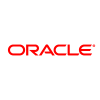
CERN openlab has published a white paper identifying the major ICT challenges that face CERN, the European Organization for Nuclear Research, and other ‘big science’ projects in the coming years.
CERN is home to the Large Hadron Collider (LHC), the world’s most powerful particle accelerator. The complexity of the scientific instruments at the laboratory throw up extreme ICT challenges, and make it an ideal environment for carrying out joint R&D projects and testing with industry.
A continuing programme of upgrades to the LHC and the experiments at CERN will result in hugely increased ICT demands in the coming years. The High-Luminosity LHC, the successor to the LHC, is planned to come online in around 2026. By this time, the total computing capacity required by the experiments is expected to be 50-100 times greater than today, with data storage needs expected to be in the order of exabytes.
CERN openlab works to develop and test the new ICT solutions and techniques that help to make the ground-breaking physics discoveries at CERN possible. It is a unique public-private partnership that provides a framework through which CERN can collaborate with leading ICT companies to accelerate the development of these cutting-edge technologies.
With a new three-year phase of CERN openlab set to begin at the start of 2018, work has been carried out throughout the first half of 2017 to identify key areas for future collaboration. A series of workshops and discussions was held to discuss the ICT challenges faced by the LHC research community — and other ‘big science’ projects over the coming years. This white paper is the culmination of these investigations, and sets out specific challenges that are ripe for tackling through collaborative R&D projects with leading ICT companies.
The white paper identifies 16 ICT ‘challenge areas’, which have been grouped into four overarching ‘R&D topics’ (data-centre technologies and infrastructures, computing performance and software, machine learning and data analytics, applications in other disciplines). Challenges identified include ensuring that data centre architectures are flexible and cost effective; using cloud computing resources in a scalable, hybrid manner; fully modernising code, in order to exploit hardware to its maximum potential; making sure large-scale platforms are in place to enable global scientific collaboration; and successfully translating the huge potential of machine learning into concrete solutions .
“Tackling these challenges — through a public-private partnership that brings together leading experts from each of these spheres — has the potential to positively impact on a range of scientific and technological fields, as well as wider society,” says Alberto Di Meglio, head of CERN openlab.
“With the LHC and the experiments set to undergo major upgrade work in 2019 and 2020, CERN openlab’s sixth phase offers a clear opportunity to develop ICT solutions that will already make a tangible difference for researchers when the upgraded LHC and experiments come back online in 2021,” says Maria Girone, CERN openlab CTO.
Follow the launch event for the white paper live via webcast from 09:50 CEST today: https://webcast.web.cern.ch/event/49
Attachment(s)
CERN openlab white paper on future IT challenges in scientific research (PDF): http://openlab.cern/whitepaper
Further information
CERN openlab website: www.cern.ch/openlab
CERN openlab press pack www.cern.ch/openlab/press
Contact
Andrew Purcell
CERN openlab communications officer
andrew.purcell@cern.ch
Tel: +41 22 76 62287
About CERN openlab
CERN openlab was established in 2001. It is a unique public-private partnership that works to accelerate the development of cutting-edge solutions for the worldwide LHC community and wider scientific research. Through CERN openlab, CERN collaborates with leading ICT companies and research institutes.
Within this framework, CERN provides access to its complex ICT infrastructure and its engineering experience — in some cases even extended to collaborating institutes worldwide.
Testing in CERN’s demanding environment provides the ICT industry collaborators with valuable feedback on their products, while enabling CERN to assess the merits of new technologies in their early stages of development for possible future use. This framework also offers a neutral ground for carrying out advanced research-and-development activities with more than one company.
Today, the following companies and research institutes are collaborating in CERN openlab:
Partners: Huawei, Intel, Oracle, Siemens
Contributors: Brocade, Cisco, IDT, Rackspace, Seagate
Associates: Comtrade, Yandex
Research members: EMBL-EBI, GSI, INFN, Innopolis University, Kazan Federal University, King’s College London, Newcastle University, SCImpulse Foundation.
-
Collaboration Members


.png)

.png)









